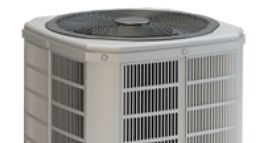It’s hard enough selling a home with minor blemishes, but what if a property has major repair needs? Should you fix the home yourself or place it on the market as is? If you’re unsure how to unload a fixer-upper, there are a few things you should consider.
Should I Repair the Home Before Selling?
This generally depends on a few factors, including whether it’s a hot or cold real estate market, the condition of competing inventory and likelihood of return on investment (ROI). Certain buyers want to purchase fixer-upper homes; however, these people usually want properties that require only light cosmetic repairs. Most of the time, fixer homes attract flippers and buyers who can’t qualify for more expensive properties. While first-time home buyers may be willing to overlook a few imperfections, few are looking for homes they can tear down to the studs.
If your property requires copious minor repairs, it may make more sense to sell it as is, instead of spending on repairs and renovations. On the other hand, if the foundation needs a rebuild, the electrical system isn’t working or the bathroom tub is falling through the joists, you’re probably better off looking at low offers from contractors and flippers.
When You Should Pay for Repairs Before Selling
It makes sense that fixer-upper buyers will discount their offers to allow for repairs. At the same time, they will also reduce their offers to account for inconvenience. For instance, if a $120,000 home requires a new $10,000 roof, the buyer isn’t likely to offer $110,000. After all, they could simply purchase an identical property with a new roof for $120,000 without enduring any hassle. Instead, the buyer might offer only $95,000 or even less. With this scenario, the seller would be right to pay for the new roof and set his or her asking price at $120,000.
In this case, fixing the roof could also attract more buyer interest and, in turn, more competition. Many buyers simply refuse to purchase a home that needs a new roof, because they worry about unexpected costs related to repairing rafters and tearing off sheathing. By not making repairs, the seller would limit the pool of available buyers.
The choice to repair or not repair should always center on potential ROI. At the same time, even if you only appear to break even by making repairs, the increased foot traffic could create more competition that might allow you to raise your asking price.
Determining Potential ROI
Intelligent sellers weigh the cost of potential improvements against the property’s value after upgrades and repairs are completed. If an improvement yields little or no return on investment, the repair may not be warranted. Before deciding to pay for repairs, investigate the other properties in and around your neighborhood. Compare the condition and amenities of these homes to yours. Bear in mind that baths and kitchens offer the highest returns. If the properties in your market have upgraded kitchens, you might want to invest in yours. This doesn’t mean spending a fortune on high-end cabinets and appliances. A minor remodel with new paint and new hardware might do the trick.
Whatever you do, carefully weigh the value of time and money related to repairs. In some cases, they could open the door to more buyers and more money. In other cases, they could be a complete waste of time.
Repairs You Should Make
While some repairs are too costly to consider, others are necessary to engage buyer interest. These minimum improvements include:
- Fix any and all code violations.
- Repair any broken appliances or HVAC systems.
- Patch cracks and holes in the ceilings and walls.
- Replace worn or damaged carpeting.
- Paint dirty or dark walls with a neutral color of paint.
- Replace any broken windows.
- Change out old or dirty window coverings.
- Fix leaky faucets.
- Patch leaky roofs.
- Replace ugly or outdated fixtures.
If your local housing market is hot, you can get away with letting a few repairs go. If the market is cold, you will have to do more to attract interest. Whatever the case, it’s a fundamental fact that fixer-upper homes deliver lower prices. Whether this matters to you depends entirely on your goals and your individual circumstances.
Home repairs can be expensive! Find out how a home warranty from 2-10 HBW can bring you peace of mind and take the worry out of home ownership. Visit 2-10.com for more information.








